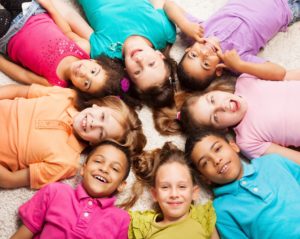 Discrimination on the playground is a common occurrence: children systematically shut others out, not allowing them to join in the group. We need to increase our own, and our children’s awareness about what is really going on when this happens.
Discrimination on the playground is a common occurrence: children systematically shut others out, not allowing them to join in the group. We need to increase our own, and our children’s awareness about what is really going on when this happens.
The damage that can be done to another’s self-esteem can be more severe and long lasting than a physical injury. I have worked with many adults who still feel the intense pain that they experienced at the hands of insensitive peers.
As parents, we teach our children how to be gentle with animals, and how to handle fragile items with care, but because the feelings of others are less visible, teaching about honoring others is often overlooked.
Children may not be exposed to good models of respectful behavior towards others, or worse, may be repeatedly observing disrespectful communications in the home between parents, between parents and children, or between siblings.
We need to understand, and to teach some basic principles including the following:
- All people have value, regardless of their skills, abilities, dress, possessions, language or culture.
- Judging others produces distance and pain.
- Saying or doing hurtful things diminishes us more than the one we hurt.
- It is never O.K. to be deliberately hurtful; there is always a peaceful way to make our point.
- We are here to help and support one another.
These are very simple principles, but if we could practice them consistently in all areas of our lives, the results would be profound. A person can have all the intelligence, skill or money in the world, but without an understanding of these principles they cannot have peace or happiness.
Perhaps we need less focus on discipline (although it cannot be ignored), and a stronger focus on teaching positive values.
Of course this begins in the home, and children can be taught from an early age to avoid behaviors that are damaging to others. If they are old enough to learn to be gentle with the flowers in the garden, they are old enough to be gentle with others. If they see others stomping on flowers however, they may model that.
It doesn’t work to try to teach kindness if children observe us stomping on the feelings of others (or theirs). As parents, we must begin to monitor our own behaviors, and if we would not be comfortable saying or doing something in the middle of the school playground, then perhaps we shouldn’t be doing or saying it at home.
We can begin modeling kindness to others even if it is not reciprocated, because change has to begin somewhere: there is no better place to start than in our own homes and neighborhoods.
Copyright © Gwen Randall-Young, All Rights Reserved. Contact us if you would like permission to reprint.
Related MP3s Available:
My Special Friends (for Children)
Go Away Monster! (for Young Children)
A World of Kindness
Creating Balance in Your Life
Thinking for Yoursef (Empowerment for Youth)
Releasing Stress






